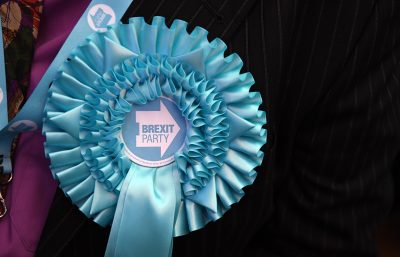Can the UK Election Solve the Brexit Impasse?

UK Prime Minister Boris Johnson said on Sunday it was a matter of ‘deep, deep regret’ that he was unable to meet the Brexit deadline of October 31st – the date by which he promised the country would leave the European Union. In an interview with Sophie Ridge on Sky News he was asked how he felt about breaking his vow to instigate Brexit ‘come what may’ at the end of October, to which he said that he was ‘deeply disappointed’. Johnson also went further to express his frustration that the negotiation period had been further extended, stating: ‘It’s so painful to have these extensions, it’s not cause of, you know, my promises or my ego or whatever, it’s because the uncertainty that it means for the whole country.’
Last week the UK parliament voted to approve the Prime Minister’s Brexit deal in principle, but also to a general election which is to be held on December 12th. This means that the overall vote on the government’s Brexit bill has been postponed until a new parliament has been voted in. However it’s not clear that the election will make any great difference to the outcome of the vote. Britain remains a country divided over the Brexit issue, and Westminster reflects this. Opinion polls continue to broadly reflect the result of the 2016 EU referendum of 51.89% for leave and 48.11% to remain. And polls which have asked if people would vote the same way if a second referendum was to be held on Brexit have also found that the vast majority would indeed cast their votes in the same way as before.
So far analysts have speculated that a hung parliament is once again a likely option. With the two main political parties in disarray over Brexit; the Conservatives themselves have lost a significant number of pro-Remain politicians to the Liberal Democrats over the issue and the Labour party is also split; it is a strong possibility that neither party will gain the majority needed. The Conservatives have also declined to strike any pact with Nigel Farage’s Brexit party, despite Farage even winning US President Trump’s approval of such a union. This is fundamentally because Farage is demanding Johnson abandons his precious, long-awaited EU withdrawal agreement, something which would be far too politically risky for the Conservatives, and something which quite frankly Johnson will not do. One only has to remember how politically unstable things became several weeks ago at the prospect of a No Deal Brexit – not to mention economically with the fall of the pound – to ascertain how much more widespread support there is for leaving the EU with a deal.
Indeed just a couple of months ago it was quite a different story, reflecting just how quickly things change in this Brexit game. No Deal Brexit was still a real possibility as Boris Johnson proclaimed he’d rather ‘die in a ditch’ than not see Brexit through on October 31st. Back then the Conservative party was only leading by 3 percentage points. The Brexit party was as high as 14 percent – trouble for both major parties but a real threat to the Tories. But now, with Johnson having managed to secure a deal with the EU, Nigel Farage’s popularity is down to single figures. If there hadn’t been a deal, in the midst of all the chaos, his proposal of a ‘clean break Brexit’ may have sounded more appealing to Leave voters and seen him steal some seats from the Tories.
One party which is predicted to make significant gains in the December election is the Liberal Democrats – the one major party which stands on a Remain platform. At the moment polls are showing they could take as much as 19% of the vote. The Conservatives feel the threat of this and have warned any pro-European Conservative voters to think carefully before voting Lib Dem. Tory Deputy Chairman Paul Scully said: ‘No matter what they say, a vote for the Liberal Democrats will create another hung parliament and risks putting Corbyn into Downing Street – meaning years more confusion, delay and indecision’. However with the Conservatives having moved further to the right in recent years and Labour to the left, the Lib Dems firmly occupy the centre ground and as such are likely to appeal to many voters, and not just those who are anti-Brexit.
As for Labour, it has faced criticism from party members and non-members alike over its murky Brexit strategy. Although many expected Corbyn to fight for Remain in the early stages, he has refused to do so, maintaining a position that there ought to be a People’s Vote on the issue. Last week Corbyn repeated his position that Labour’s pledge is to renegotiate the current Brexit deal and then put it to a referendum, with Remain as an option. He is determined that Labour will not take a more concrete position on Brexit until after the general election. Whether this strategy will cost them seats come December, is the question.
Everything is to play for therefore at this ‘Brexit election’. The outcome will be historic and it will have major consequences not just for Britain’s future in the EU, but also for the UK’s political parties and their leaders alike.
*
Note to readers: please click the share buttons above or below. Forward this article to your email lists. Crosspost on your blog site, internet forums. etc.
This article was originally published on InfoBrics.
Johanna Ross is a journalist.
Featured image is from InfoBrics

